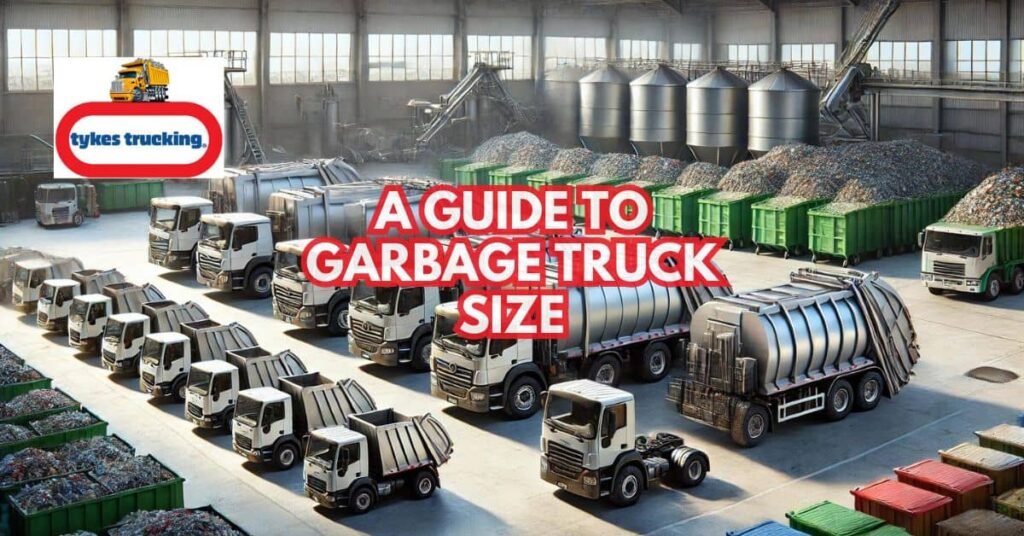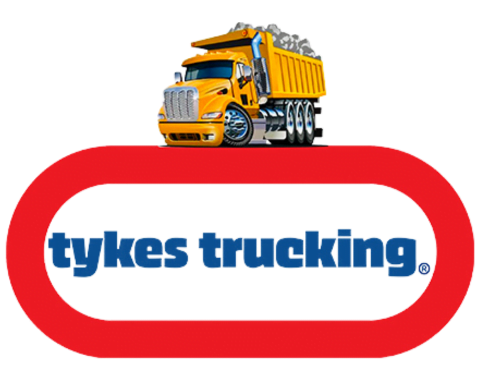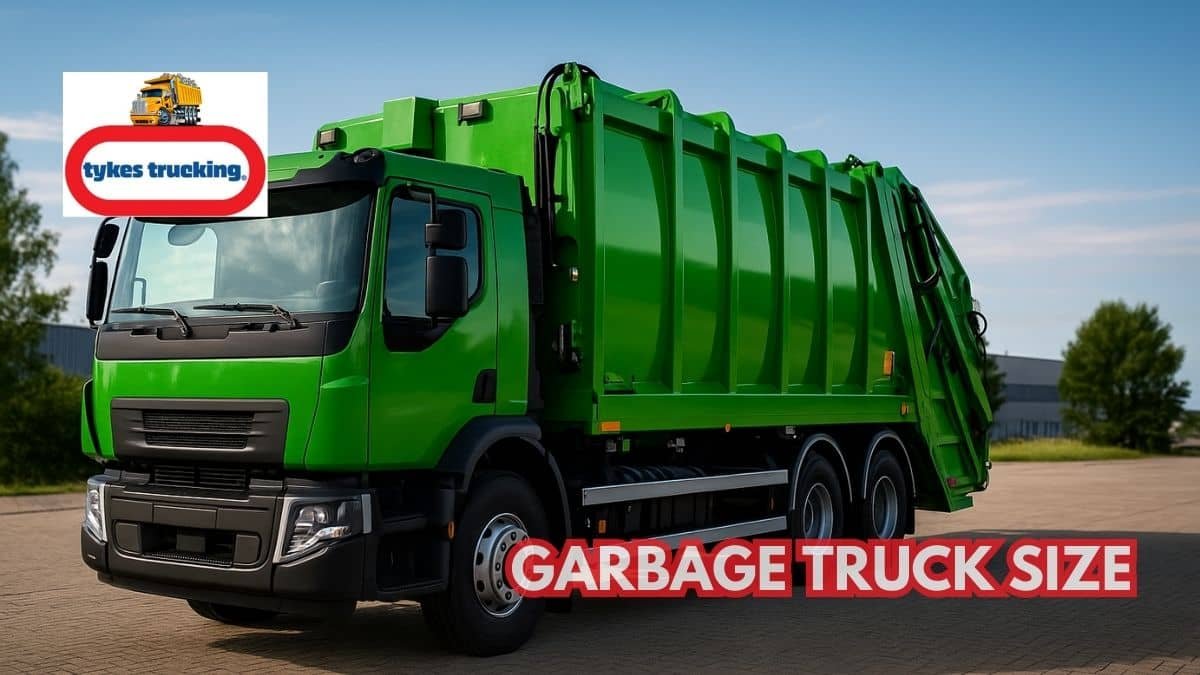Garbage truck size affects how well waste is collected, how much it costs, and how safe the work is.
Different routes, types of waste, and local conditions call for different truck dimensions and capacities.
A truck that is too small may require more trips, while a truck that is too large may be hard to maneuver or maintain.
We’ll explain how size influences performance, environment, and long-term value.
We’ll help you understand how to choose a garbage truck size that works best for your community’s needs.
1. The Garbage Truck Lineup: Rear-Loaders, Front-Loaders, and Side-Loaders
Garbage trucks are built in different styles to match the type of work they need to do, and the most common are rear-loaders, front loader garbage trucks, and side-loaders.
Rear-loaders have an opening at the rear where workers place bags, carts, or bins of refuse, and they are often chosen for residential routes with tighter streets.
These trucks can handle a variety of container sizes and are well-suited for neighborhoods where frequent stops are required.
Front loader garbage trucks are more common in commercial waste collection and use large forks to lift a heavy container over the cab and empty it into the hopper.
Many businesses rent or own these containers, which stay in one place until a truck arrives to empty them.
Brands like Heil are well known for making both rear and front loader designs that are durable and built for different collection needs.
Side-loaders can be manual or fully automated, using a mechanical arm to pick up a container placed at the curb.
Automated side-loaders are popular in cities that want to reduce labor costs and improve speed since one driver can handle the route alone.
Each truck type has specific size ranges and features that make it better suited for certain areas, waste types, and collection schedules.
Choosing the right design ensures that the refuse is collected efficiently and that the truck fits the working environment.
🚚 Why Choosing the Right Flatbed Truck Tarps Is Crucial for Safety
2. Choosing the Right Ride: Factors Affecting Garbage Truck Size Selection
Selecting the appropriate garbage truck size depends on various factors, such as the type of waste, area population density, and street dimensions.
Urban areas with narrow streets might require smaller trucks for better maneuverability.
High-density areas benefit from larger trucks to minimize the number of trips and increase efficiency.
Additionally, the type of waste, whether residential, commercial, or industrial, plays a crucial role in determining the optimal truck size.
Understanding these factors ensures efficient and safe waste collection operations.
🚚 How to Choose the Right Flatbed Truck Ramps for Your Truck
3. Measuring How a Garbage Truck Fits the Road
The size of a garbage truck is more than just its length or width.
Measurements like wheelbase, turning radius, and overhang decide if the truck can reach every part of a route.
Height matters when passing under tree branches or wires.
Tight areas such as alleys, cul-de-sacs, and small parking lots may require special size checks.
Knowing these measurements helps choose a truck that can move safely and work well in different places.
🚚 Why Construction Hauling Services in Montalban Are Essential for Local Building Projects
4. Go Big, Go Efficient: Benefits of Larger Garbage Trucks
Larger garbage trucks provide a bigger payload capacity, which allows them to collect more waste before needing to unload.
This increased space often comes in the form of a larger cubic volume in the truck body, giving crews more room to store refuse during each route.
Many of these trucks include a powerful compactor that presses the waste into a smaller and more compact form, making the most of the available space.
Efficient packing systems inside the hopper help arrange the waste so the payload is balanced and stable.
By carrying more material per trip, these trucks reduce the total number of trips needed, which saves fuel and labor hours.
This also lowers wear on tires and engines since the trucks spend less time on the road.
In busy urban areas, this efficiency means faster collection schedules and fewer interruptions to traffic.
Larger trucks can also handle bulky or high-volume waste types that smaller trucks cannot manage as easily.
For communities with high daily waste production, the benefits of increased payload and effective packing can significantly improve collection speed and cost control.
Still, operators must ensure that these larger trucks can be used safely in the spaces they serve, especially in narrow or crowded streets.
🚚 What Are the Key Challenges in Heavy Hauling Services and How to Overcome Them

5. Not All Giants Are Welcome: Drawbacks of Using Massive Garbage Trucks
While larger garbage trucks offer many benefits, they also come with significant drawbacks.
Massive trucks can be difficult to maneuver in narrow or crowded streets, leading to potential traffic disruptions and accidents.
The increased weight of these trucks can cause more wear and tear on roads, resulting in higher maintenance costs for municipalities.
In addition, larger trucks often have higher purchase and maintenance costs, which can strain budgets.
Smaller communities or those with narrow streets may find these trucks impractical and opt for smaller, more agile options.
🚚 How Dump Truck Hauling Services Can Save the Day
6. Fueling the Future: How Garbage Truck Size Impacts the Environment
The size of a garbage truck directly affects its fuel consumption and emissions.
Larger trucks, although more efficient in terms of waste volume per trip, can contribute to higher overall emissions if not managed properly.
Smaller trucks may require more trips to collect the same amount of waste, potentially leading to greater fuel use and pollution.
Advancements in fuel technology and emissions control can mitigate these impacts, but the balance between size and environmental footprint remains a key consideration.
Choosing the right size truck is essential for sustainable waste management practices.
🚚 How Tank Truck Capacity Influences Fuel and Chemical Transportation Efficiency
7. Safety First: Size and Its Influence on Garbage Truck Operations
The size of a garbage truck has a significant impact on operational safety.
Larger trucks require more skilled drivers and pose greater risks, especially in densely populated or narrow urban areas.
These trucks have larger blind spots and are more challenging to navigate, increasing the potential for accidents.
Proper training and safety protocols are essential to mitigating these risks.
Ensuring that drivers are well-trained and that trucks are equipped with advanced safety features can help maintain safe operations, regardless of truck size.
🚚 Garbage Truck Hopper 101: Everything You Never Knew You Wanted to Know
8. Robots Behind the Wheel: How Automation Affects Garbage Truck Size
Automation is revolutionizing the waste collection industry, influencing the size and design of garbage trucks.
Automated side-loaders, for example, are designed to optimize efficiency with specific dimensions that accommodate robotic arms.
These trucks can be operated by a single driver, reducing labor costs and increasing collection speed.
The shift towards automation requires careful consideration of truck size to ensure compatibility with automated systems.
As technology advances, the design and size of garbage trucks will continue to evolve, emphasizing efficiency and automation.
🚚 Why Flatbed Truck Towing Is the Safest Option for All Vehicle Types
9. Crystal Balling Garbage Collection: Future Trends in Truck Technology
Future trends in garbage truck technology focus on efficiency, automation, and sustainability.
Innovations such as electric garbage trucks are gaining traction, offering reduced emissions and lower operational costs.
Moreover, smart technologies, including route optimization software and real-time tracking, are enhancing the efficiency of waste collection.
Autonomous garbage trucks are also on the horizon, promising to revolutionize the industry further.
These advancements will continue to influence truck sizes, making them more adaptable to specific needs and environmental considerations.
🚚 Essential Tools for Your Dump Truck Toolbox
10. Keeping the Community in the Loop: Importance of Resident Input
Involving residents in decisions about garbage truck sizes is essential for effective waste management.
Community feedback helps identify specific needs and preferences, ensuring that the chosen truck sizes are practical and well-received.
Transparent communication about the benefits and limitations of different truck sizes can foster cooperation and acceptance.
Regular consultations and surveys can gather valuable insights from residents, guiding informed decisions.
This collaborative approach helps create a waste management system that works well for everyone.
🚚 Why Delivery of Aggregates in Montalban Is Vital for Infrastructure Projects
11. Finding the Balance: Cost Analysis of Different Garbage Truck Sizes
The cost of garbage trucks varies significantly based on their size and capabilities.
Larger trucks typically have higher upfront costs but can offer savings in operational expenses due to fewer trips and greater efficiency.
Smaller trucks may be cheaper initially, but could incur higher long-term costs due to more frequent use and maintenance needs.
Conducting a thorough cost analysis that considers both immediate and future expenses is crucial.
Balancing these factors ensures that the chosen truck size provides the best value for the community’s budget.
🚚 Your Local Dump Truck Provider in Marikina City
💡 Conclusion
Choosing the right garbage truck size is a critical decision for any waste management program.
It involves evaluating operational efficiency, environmental impact, safety considerations, and community input.
By understanding the various factors and future trends, communities can make informed choices that meet their specific needs.
The right truck size ensures efficient, safe, and sustainable waste collection.
Thoughtful decision-making ultimately benefits both the community and the environment.
😉 Our Services
Tykes Trucking Services specializes in delivering aggregates and providing top-notch hauling services.
We are dedicated to meeting your needs with efficiency and reliability.
For inquiries or to book our services, you can reach us at 09175435019.
Alternatively, connect with us through our Facebook page or the contact form on our website.
Trust Tykes Trucking Services for all your hauling and aggregate delivery requirements.

